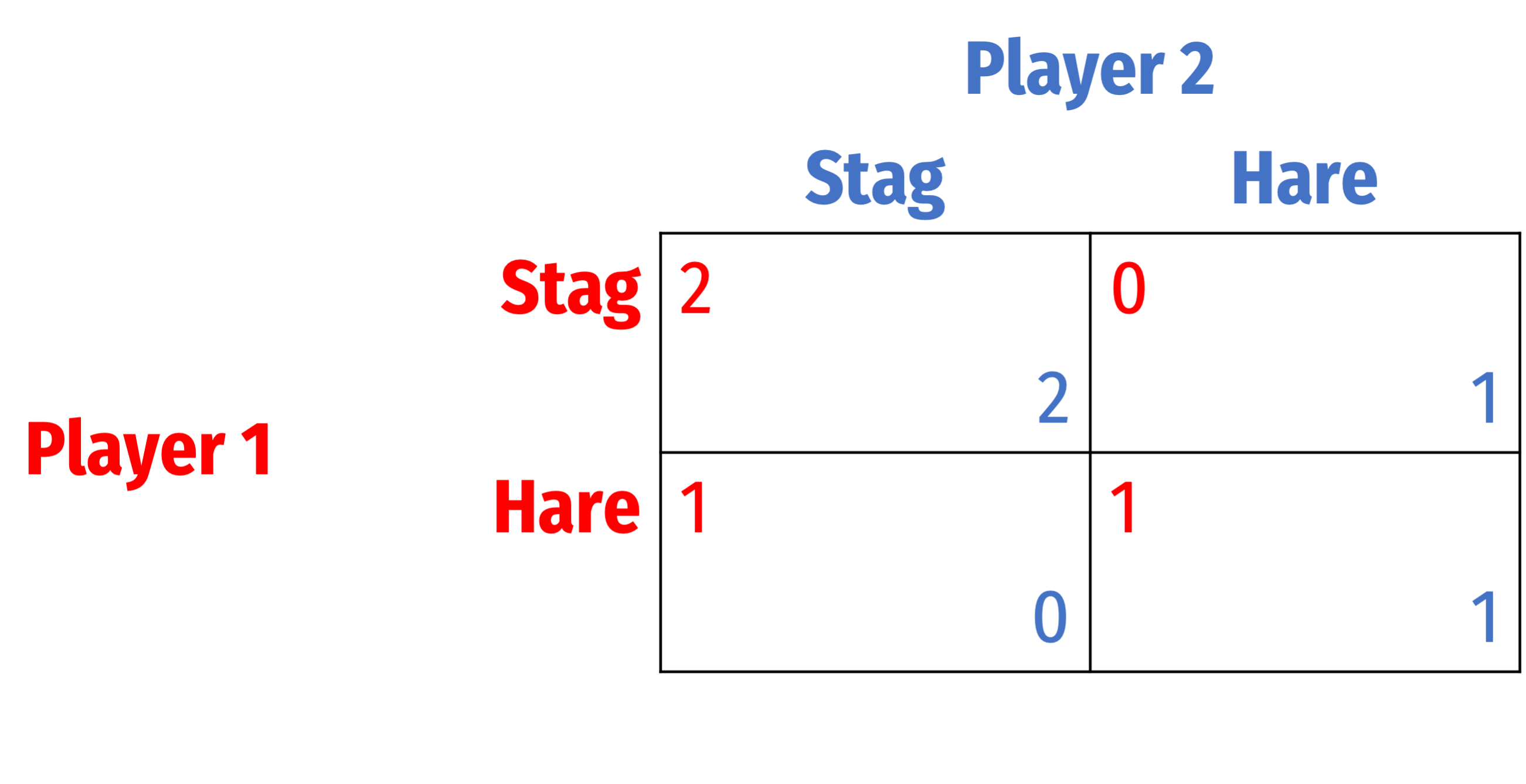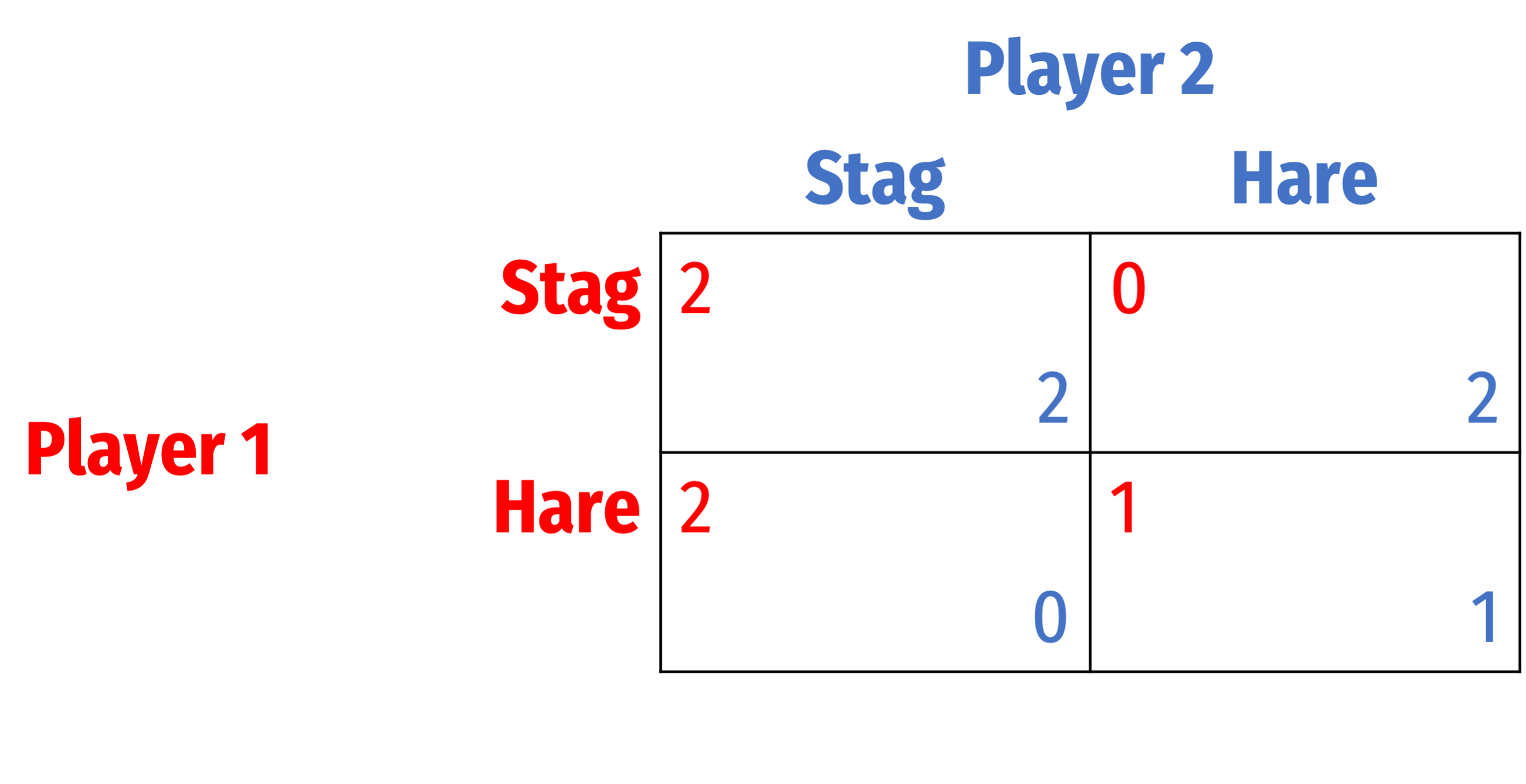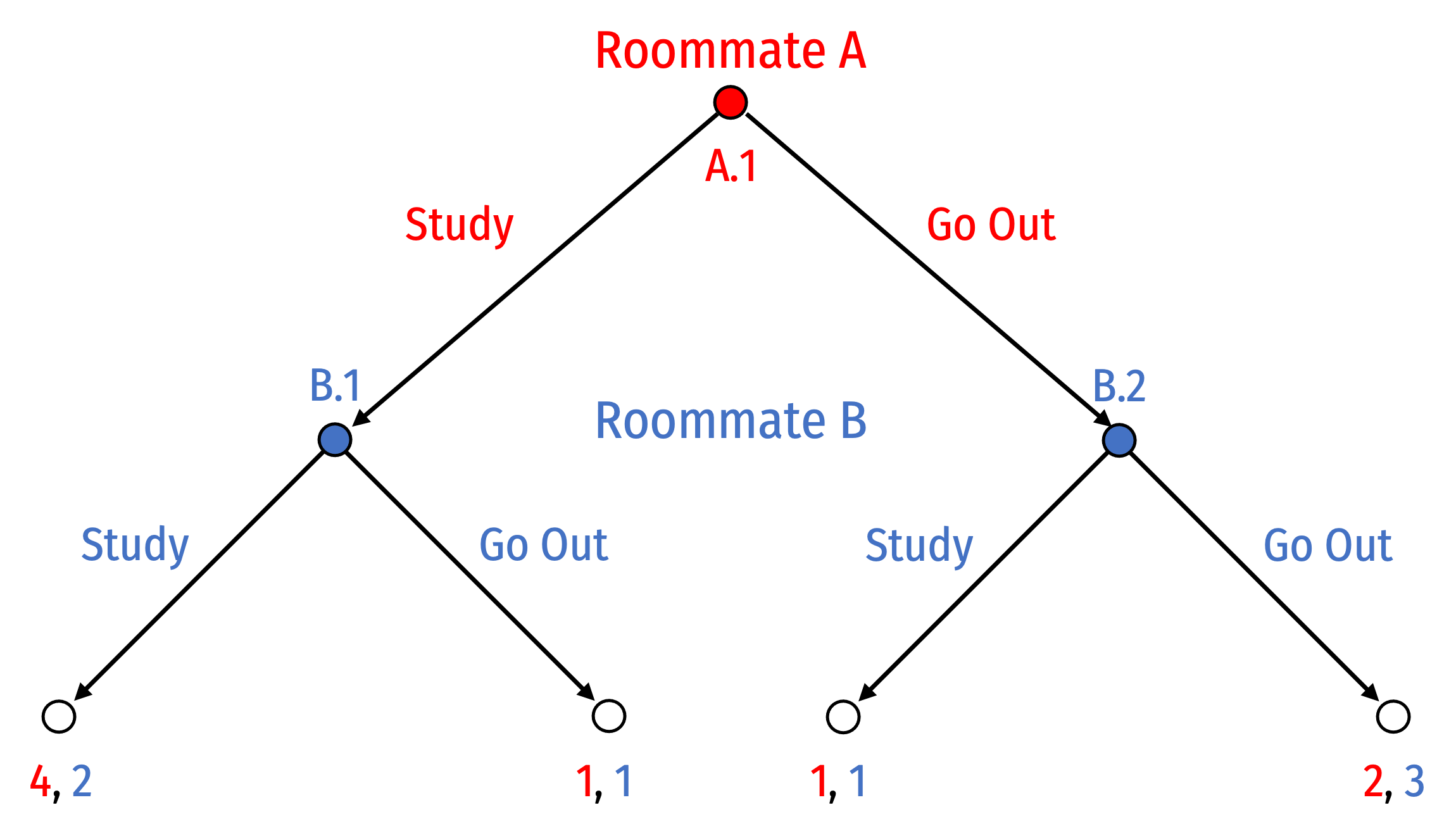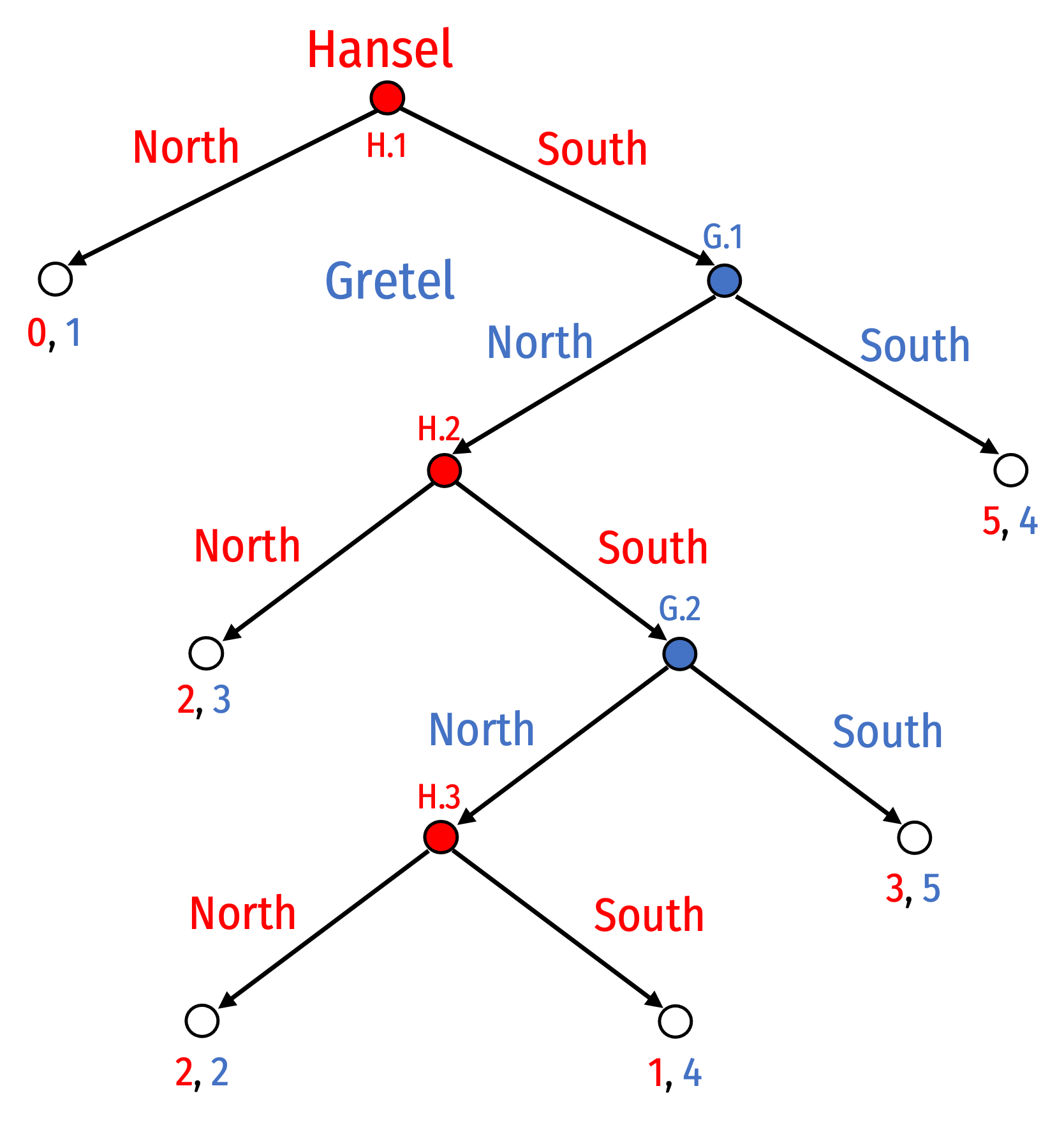Please read the instructions for completing homeworks.
Concepts
Question 1
What is the difference between a finitely repeated game and an infinitely repeated game? What is the pure strategy Nash equilibrium in a finitely-repeated game (with a unique Nash equilibrium in a one-shot version)? Describe two interpretations of infinitely repeated games.
Question 2
Describe, in your own words, the simple version (or implications) of the folk theorem for sustaining cooperation.
Problems
Question 8
Consider an evolutionary version of the Stag Hunt game, where members of a species can decide to cooperate and hunt a Stag together, or defect and go after a Hare on their own.

Part C
What are the pure strategy Nash equilibria (PSNE) of this game? Reconcile this with your answers in parts a and b.
Part D
Suppose the environment changes such that hunting a large Hare alone is equally rewarding to the cooperative hunt of a Stag (but if they both hunt Hare, it is less rewarding).

Under the new environment, is Hare evolutionarily stable (ESS)?
Part F
Given what we learned in class about the relationship between (pure strategy) Nash equilibria and evolutionarily stable strategies, we now need a new refinement. Define a strict Nash equilibrium in pure strategies to mean that each player is playing a strict (or unique) best response to other players, i.e. there is no other strategy that is also a best response to another player. In the one-shot game in part d, which PSNE are strict, and which are not (i.e. “weak” PSNE? What do you then think is the relationship between ESS and strict/non-strict PSNE?
Question 9
Consider the evolutionary Hawk-Dove game, where members of a species are competing over a resource valued at 12, with a cost of losing a fight being .
Question 10
Consider the following game between two roommates. Roommate A has a very difficult exam the next morning, while Roommate B does not. The two of them can each decide to Study or Go Out that evening. Both would rather do something together, while A would certainly prefer they both Study and B would prefer they both Go Out.
Part A
Suppose they both agree that A gets to decide first and B must respond, as in the following game:

Solve this game for the rollback equilibrium using backwards induction.
